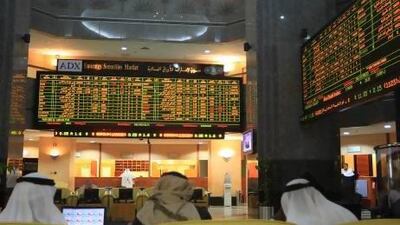Don't be persuaded by everything Goldman Sachs tells you. That's the message I've taken from recent informal talks with senior members of the UAE's financial industry.
A couple of years back, the story went around that the giant US investment bank had produced a "road map" for the consolidation of the UAE's three stock exchanges. Goldman never confirmed it to anybody as far as I know, and I never met anybody who has seen it, let alone read it.
But it became accepted wisdom that a project to unite the Abu Dhabi Securities Exchange (ADX), the Dubai Financial Market (DFM) and Nasdaq Dubai existed; and furthermore, that such a project was viable, desirable and virtually inevitable.
I would say majority opinion in the UAE financial business, especially in the Dubai International Financial Centre, was persuaded, by the argument that the three markets had to be merged into one to ensure the well-being of the Emirates financial industry.
It seemed like plain vanilla logic: how could a country with a population of (then) about five million support three stock exchanges? Turnover and trading volumes had withered since the financial crisis, and even the big stocks - DP World, Emaar, Etisalat - showed daily trading figures meagre by international standards. Merge the markets and all would be well, was the apparent conclusion.
Well, it hasn't happened. True, the DFM and Nasdaq Dubai now share a common platform, clearing and settlement systems, and but for some significant differences - in listing requirements and trading currency - are to all intents and purposes unified. "Two exchanges, one market," the slogan goes.
But ADX has stayed resolutely out of the consolidation. The interpretation placed on this by the apologists for merger was that it was stubbornness on the part of policymakers, or some basic misunderstanding over value, that was to blame.
But maybe that was wide of the mark all along. Policymakers in Abu Dhabi and Dubai believe in keeping the two markets separate because, well, they like it that way. They serve retail customers; they see advantages in having markets that reflect their local economies, and each has devoted a good deal of time and money into building up its own market. They see no compelling reason to throw all that away.
But what about liquidity and economies of scale? Merging exchanges would increase liquidity, surely, and there would be big cost savings from operating out of one location.
Not necessarily. Liquidity is sometimes a reflection of rising values, rather than any intrinsic quality of its own. When stock prices are rising, as has been the case on UAE markets for the past year, trading volumes will increase, as has also been the case. After four years of uncertainty in global and regional financial markets, international investors are taking a shine to UAE markets again, and that in itself will improve liquidity.
Some call this new interest in ADX and DFM "hot money", in a pejorative way, but what does it matter? One man's hot money is another man's liquidity.
In any case, the nature of international share trading is changing. All over the world, traditional stock exchange platforms are becoming increasingly the tools of multilateral trading facilities (MTFs), basically trading mechanisms created by financial institutions that owe no allegiance or loyalty to national stock exchanges.
Digitally driven MTFs can trade where they like. They do not have to be "members" of some quaint exchange "club" with a seat in a pit. Where an exchange is located is of absolutely no interest to an MTF.
Moreover, stock exchange mergers, when they have been attempted, have often run into problems. London, Canada, Australia, Singapore, New York and Frankfurt have all tried market mergers that have either been aborted or have not produced the synergies expected.
What is to guarantee an Abu Dhabi/Dubai merger would avoid the same pitfalls?
There might be some savings in technology investment, but big savings in labour costs would be difficult to realise.
So, whatever the Goldman Sachs road map said, there is no real agreement on the desirability, practicality or inevitability of UAE stock market consolidation. At the moment anyway, things look to be working pretty well as they are.

